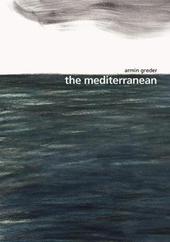
|
The Mediterranean
Hardback
Main Details
| Title |
The Mediterranean
|
| Authors and Contributors |
By (author) Armin Greder
|
| Physical Properties |
| Format:Hardback | | Pages:40 | | Dimensions(mm): Height 315,Width 220 |
|
| ISBN/Barcode |
9781760630959
|
| Classifications | Dewey:305.906914091638 |
|---|
| Audience | |
|---|
|
Publishing Details |
| Publisher |
Allen & Unwin
|
| Imprint |
Allen & Unwin Children's Books
|
| Publication Date |
24 January 2018 |
| Publication Country |
Australia
|
Description
HONOUR BOOK: CBCA Picture Book of the Year, 2019 With eloquent and devastating imagery, the creator of the multi-award-winning book The Island again asks us to examine our responses to the plight of refugees. How long will we remain silent witnesses? 'After finishing this book, I imagined a different story, one recounting the journey of a family with an entry visa, setting out on an aeroplane or a ship, landing or docking safe and sound in a country where they can make a new start. These are known as "safe and legal pathways" and Amnesty International calls on the international community to provide them to those fleeing war, torture and persecution. Routes over land, air or sea that would save people having to entrust their lives to crime rings, which is otherwise the only possibility that remains open to them. I imagine Armin Greder would enjoy writing it but he cannot. Because today he needs to tell the story of that shared sea that has become a mass grave: the Mediterranean. Unfortunately, there is also a third story to tell: a story of silence, one with no protagonists. That is how it will be if the European Union succeeds - through "cooperation agreements" with African countries - in moving its sea borders much further south. Then there will be no more deaths (at sea). And we will eat our fish in peace.' Riccardo Noury Spokesperson, Amnesty International Italy
Author Biography
Armin Greder was born in Switzerland. In 1971 he migrated to Australia where he worked as a graphic designer and later taught design and illustration at a tertiary art institution. Books he has illustrated include 2016 CBCA Picture Book of the Year, Flight, with Nadia Wheatley, and The Great Bear, An Ordinary Day and I Am Thomas, all written by Libby Gleeson. Books he has authored and illustrated include The Island, The City and Australia to Z. His work, in which charcoal is prominent, reflects his European background. He is the recipient of a number of international recognitions such as the Bologna Ragazzi Award and has been nominated for the Hans Christian Andersen Prize. He now lives in Lima, Peru, together with his companion Victoria.
Reviews'As a wordless book, the illustrations obviously carry the weight of the story, and it feels like all the heaviness of the book is immediately transferred right to our shoulders as we read it. We can't ignore what we see in this book, and it shines a harsh spotlight on the fact that most wars are started for profit and countless lives are lost in the process. The charcoal illustrations are muted throughout most of the book with rare exceptions, and the dark choices allow for a wide variety of tones throughout each spread, ranging from sinister to anonymous.' - Let's talk Picture Books (UK) 'This book should be used to enhance and enrich discussion of these issues in every secondary school classroom. Our young people deserve the chance to reflect on the important importance of the Mediterranean and its surrounding countries, once known as the cradle of western civilisation, and the holiday destination of wealthy Europeans, and now as the scene of international neglect of human life.' - School Librarian (UK) 'Having dramatically dealt with the theme of prejudice in his earlier picture book The Island, here Armin Greder uses his distinctive charcoal drawings to depict a dark world with a global dimension. The only words in the story are a single sentence indicating what is happening to the body in the water in the first picture. From there on the reader needs to examine the pictures to draw conclusions about how that body came to be in the sea. An afterword by Alessandro Leogrande, an Italian journalist who writes about social, political and environmental issues, fills in the background about the "food chain" portrayed in this disturbing picture book which demands discussion.' - CLPE (UK)
|